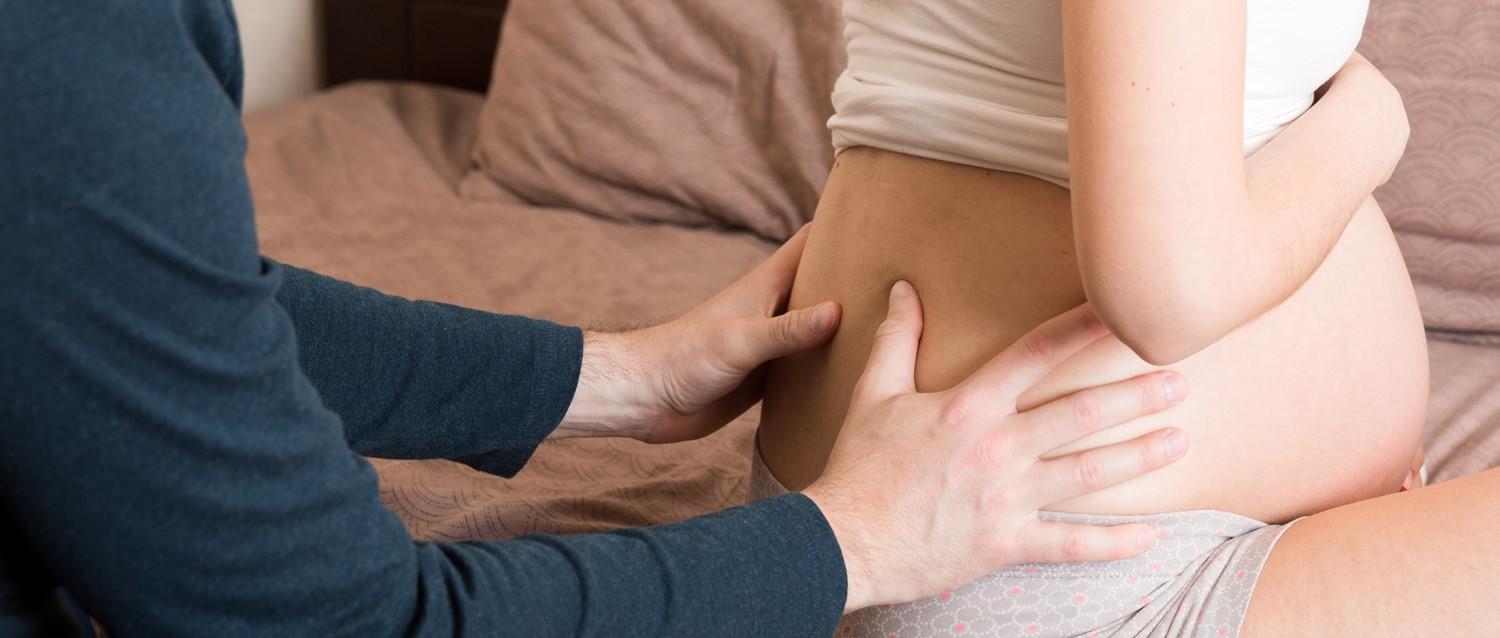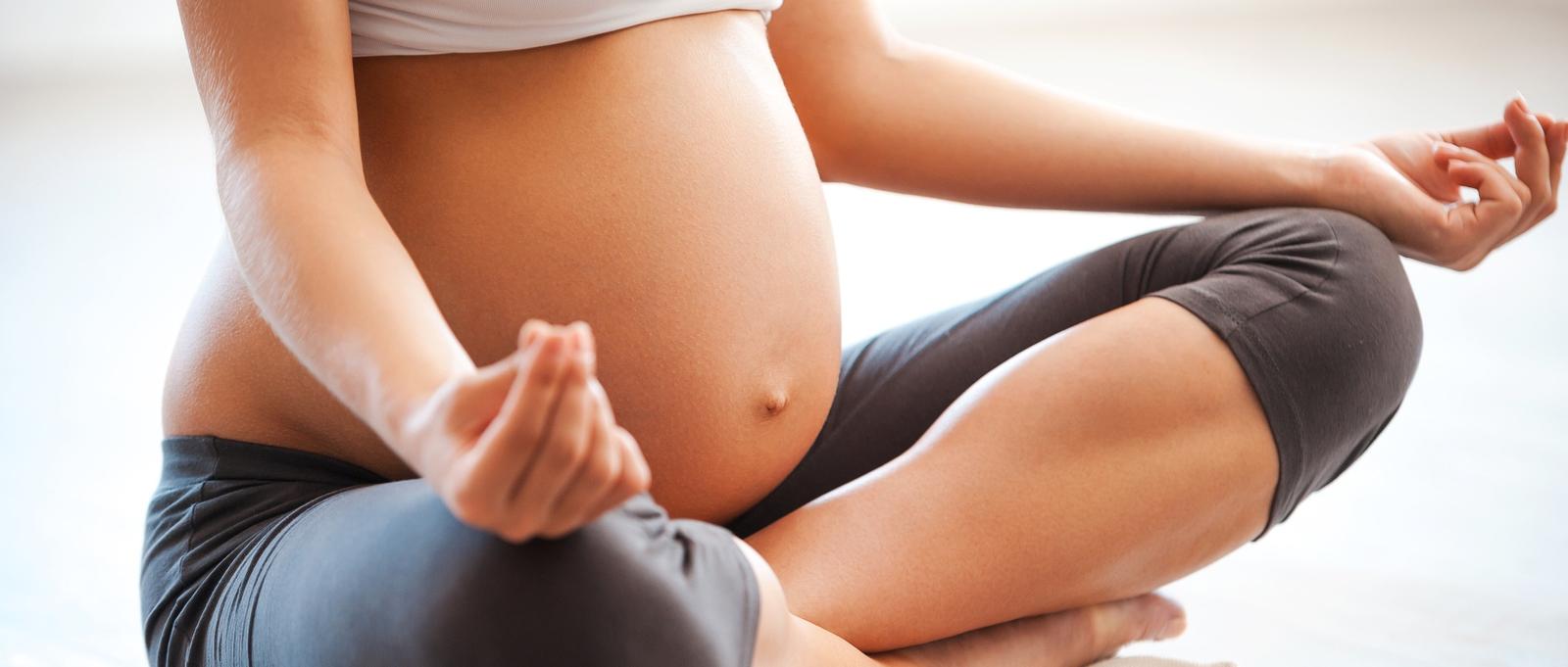
How to cope with a fear of childbirth
Peer reviewed by Dr Sarah Jarvis MBE, FRCGPLast updated by Lydia SmithLast updated 24 Oct 2019
Meets Patient’s editorial guidelines
- DownloadDownload
- Share
- Language
- Discussion
Every pregnant woman will have some degree of concern about what childbirth will feel like, how they will manage and what might happen.
For some, though, the fear can become physically and emotionally disabling and prevent them from having children altogether, even if they want a baby. Tokophobia is defined as an extreme fear or phobia of childbirth.
In this article:
"Tokophobia is a pathological fear of childbirth," explains Kim Thomas, CEO of the Birth Trauma Association (BTA). "There are two types: primary tokophobia, where the woman has never experienced childbirth, and secondary, where the woman has tokophobia as a consequence of a previous traumatic birth.
"In primary tokophobia, the cause can be hearing other women's stories of traumatic birth experiences, or watching frightening births on television programmes. Often this will date back to childhood," Thomas says.
"Women with tokophobia can feel very stressed and anxious about giving birth. Women who are already anxious are more likely to have tokophobia, but not all tokophobic women are anxious about other things or have other mental health conditions."
In secondary tokophobia, a traumatic birth can lead to a woman developing extreme fear over giving birth again. "At the BTA, we see a lot of women who are terrified even of getting pregnant after an extremely difficult birth experience," Thomas adds.
Research suggests some women with the condition choose to avoid pregnancy altogether - or may consider an abortion if they find themselves in that position. When pregnant, women with tokophobia may request a caesarean section to avoid the process of actually having to give birth.
Dr Patrick O'Brien, consultant obstetrician and spokesperson for the Royal College of Obstetricians and Gynaecologists, adds that tokophobia is a complex and rare condition that can sometimes be associated with depression or other phobias or anxieties over childbirth.
The number of women affected by tokophobia varies between countries and depends on the definition. Worldwide, the estimate is that 14% of women have tokophobia: when this was broken down by severity in one study, 75% of women had 'low to moderate' fear of childbirth, 25% exhibited high or very high fear and 1.6% were classified as having 'pathological' tokophobia.
A previous traumatic birth, miscarriage, stillbirth or termination of pregnancy, young maternal age, being a first-time mother, pre-existing psychological problems, lack of social support, a history of abuse, or hearing stories of difficult births may all be factors.
While tokophobia is relatively rare, it's important to note that many women experience fear or anxiety over giving birth - whether it's worries over the pain or concern about the baby's health.
"Some degree of fear or apprehension about giving birth is common in many expectant mothers," O'Brien adds. "This may also be due to a fear of pain or tearing, or a previous traumatic birth experience."
Continue reading below
"I'm convinced people die when they give birth"
Claire*, 32, has tokophobia and doesn't want to have her own biological children because of it.
"This sounds really strange, but I am convinced that people will die when they give birth - even though I've not experienced this with anyone I know," she says. "I didn't want to know when my sister-in-law was giving birth because it terrifies me, and I've asked to not be told when my sister goes into labour too. I just want to know when the baby is here and they're both OK."
In junior school, Claire remembers seeing a sex education video where the woman tore during birth. "I don't remember ever talking about it at the time though - I don't think I was aware of the trauma it caused until I was in my late teens. That's when the phobia really manifested itself - I guess it timed with when I was thinking about contraception, and suddenly pregnancy was this tangible thing and the phobia got really bad."
Her phobia was particularly bad when she was around 20. "I would tremble, get palpitations, and tear up," she says. "It's got more manageable as I've got older and seen friends start their own families. When I know someone is approaching their due date, I still really struggle. I don't really suffer from anxiety but I walk around with a knot in my stomach and I'm really anxious until I hear that the delivery has been fine. When it's someone I really love, it's more severe."
Jess*, 36, has secondary tokophobia following the traumatic birth of her first child, during which her baby became stuck and stopped breathing. She also suffered severe tearing and needed a blood transfusion. She and her child survived, but she now fears giving birth again even though she wants a second baby.
"I realise now how little can be controlled for, or predicted, and when it comes down to minutes and seconds, the wrong call might mean death for me or my child," she says. "We both survived, and I'm grateful, but we very easily could have not made it. I have a child already and I'm scared to risk leaving her without her Mum, and I'm also scared because I'm older and at more risk of complications because of my age."
If you suffer from tokophobia or any other fears or anxieties over childbirth, there are steps you can take to seek treatment and support.
Visit your GP for professional help
It's important to visit your GP who can advise on the right course of action if you have tokophobia.
"Women should be offered counselling, such as cognitive behavioural therapy, to help them address their fears, and be given the opportunity to talk through their concerns with their doctor," O'Brien says.
"Support should also be provided by a range of healthcare professionals, including midwives, obstetricians, and occasionally perinatal mental health specialists, so that the most appropriate choice of care can be delivered."
If a woman with tokophobia is pregnant, her phobia should be clearly identified - and there should be a collaborative, informed decision between the woman and her obstetrician or midwife about plans for birth and delivery. It may also help to become familiar with the ward beforehand. Postnatal follow-up care - including mental health support - is also important too.
Hull and East Riding of Yorkshire, where there is an established perinatal mental health service for women and their families, recently opened a new pathway to help women with tokophobia - becoming one of the first areas outside of London to do so.
Continue reading below
Have a strong support network
Tokophobia can be very isolating, particularly if women feel nobody else shares the intense fear. For many, the phobia can be less debilitating if they have a strong support system in place, including from partners, relatives and friends.
"There is a tokophobia support group on Facebook, where women can share their experiences, and that can be helpful," Thomas adds.
Try antenatal courses
"Education, such as that provided in antenatal 'parentcraft' sessions, can also help to alleviate fears," says O'Brien. The NCT also offers antenatal courses which are a great way to find out more about birth, labour and life with a new baby.
Thomas also recommends this NHS best practice toolkit too, which provides information about tokophobia.
*Names have been changed to protect identities.
Patient picks for Labour and childbirth

Pregnancy
How to feel more confident about childbirth
Everyone experiences pregnancy and childbirth differently, but it is common to feel anxious or scared of labour. Often, we only encounter labour and birth on the TV, where it is unrealistically represented as dramatic, excruciating and very medicalised. Unsurprisingly, this can lead many pregnant people to fear the process and question whether they will cope. So how can women feel more confident about childbirth?
by Lydia Smith

Pregnancy
Does mindfulness help during pregnancy and delivery?
If there is one universal truth about pregnancy and childbirth, it’s that they rarely go as planned. When I was pregnant with my second child, I took a tumble down the steps and landed myself in the hospital with pre-labour contractions.
by Sara Lindberg
Article history
The information on this page is peer reviewed by qualified clinicians.
24 Oct 2019 | Latest version
24 Oct 2019 | Originally published

Ask, share, connect.
Browse discussions, ask questions, and share experiences across hundreds of health topics.

Feeling unwell?
Assess your symptoms online for free
Sign up to the Patient newsletter
Your weekly dose of clear, trustworthy health advice - written to help you feel informed, confident and in control.
By subscribing you accept our Privacy Policy. You can unsubscribe at any time. We never sell your data.